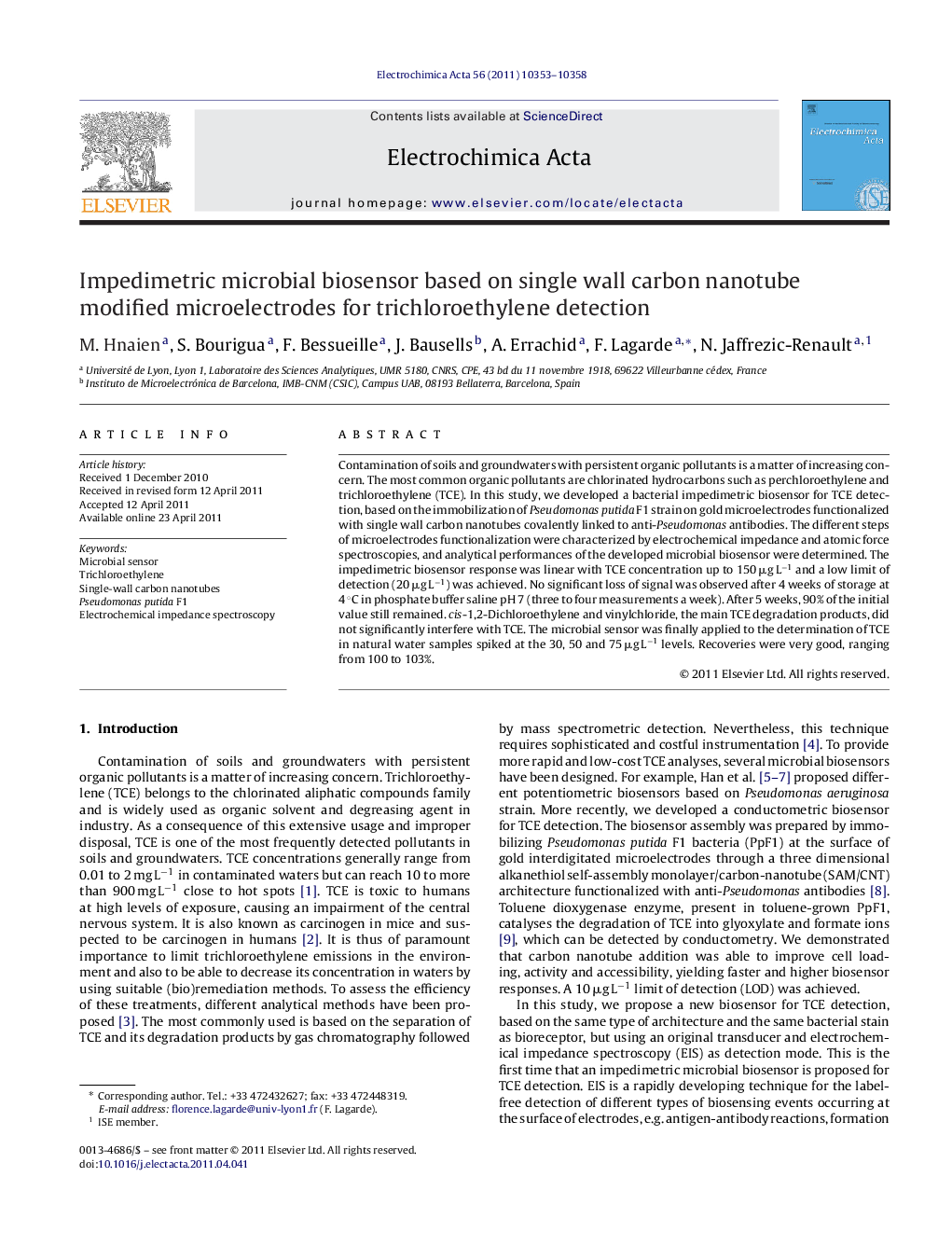| Article ID | Journal | Published Year | Pages | File Type |
|---|---|---|---|---|
| 190088 | Electrochimica Acta | 2011 | 6 Pages |
Contamination of soils and groundwaters with persistent organic pollutants is a matter of increasing concern. The most common organic pollutants are chlorinated hydrocarbons such as perchloroethylene and trichloroethylene (TCE). In this study, we developed a bacterial impedimetric biosensor for TCE detection, based on the immobilization of Pseudomonas putida F1 strain on gold microelectrodes functionalized with single wall carbon nanotubes covalently linked to anti-Pseudomonas antibodies. The different steps of microelectrodes functionalization were characterized by electrochemical impedance and atomic force spectroscopies, and analytical performances of the developed microbial biosensor were determined. The impedimetric biosensor response was linear with TCE concentration up to 150 μg L−1 and a low limit of detection (20 μg L−1) was achieved. No significant loss of signal was observed after 4 weeks of storage at 4 °C in phosphate buffer saline pH 7 (three to four measurements a week). After 5 weeks, 90% of the initial value still remained. cis-1,2-Dichloroethylene and vinylchloride, the main TCE degradation products, did not significantly interfere with TCE. The microbial sensor was finally applied to the determination of TCE in natural water samples spiked at the 30, 50 and 75 μg L−1 levels. Recoveries were very good, ranging from 100 to 103%.
► We propose an impedimetric microbial biosensor for trichloroethylene detection. ► A new transducer modified with carbon nanotubes and Pseudomonas putida is evaluated. ► Functionalization steps are controlled by impedance spectroscopy and AFM. ► The biosensor offers good sensitivity, selectivity, linear range and stability. ► The biosensor is successfully applied to spiked natural water samples.
